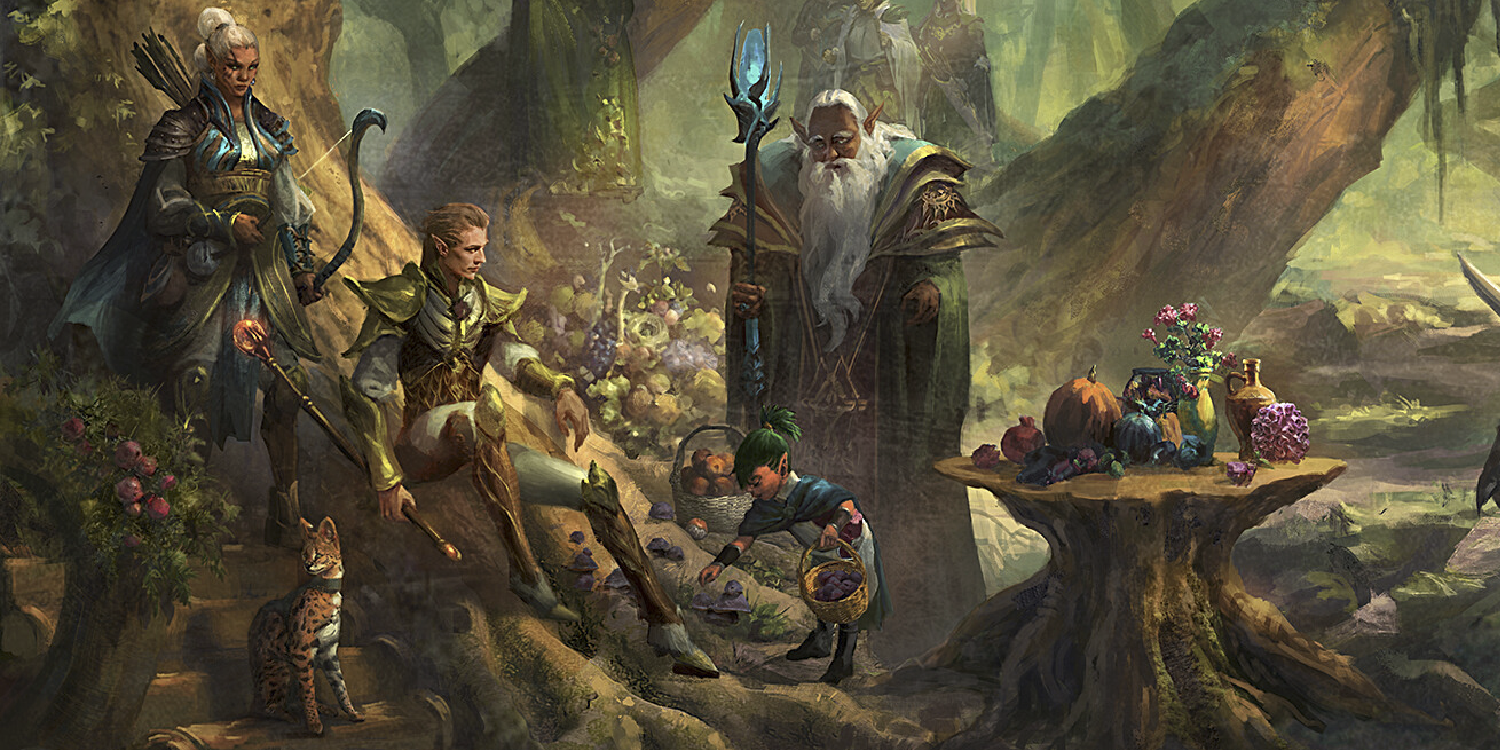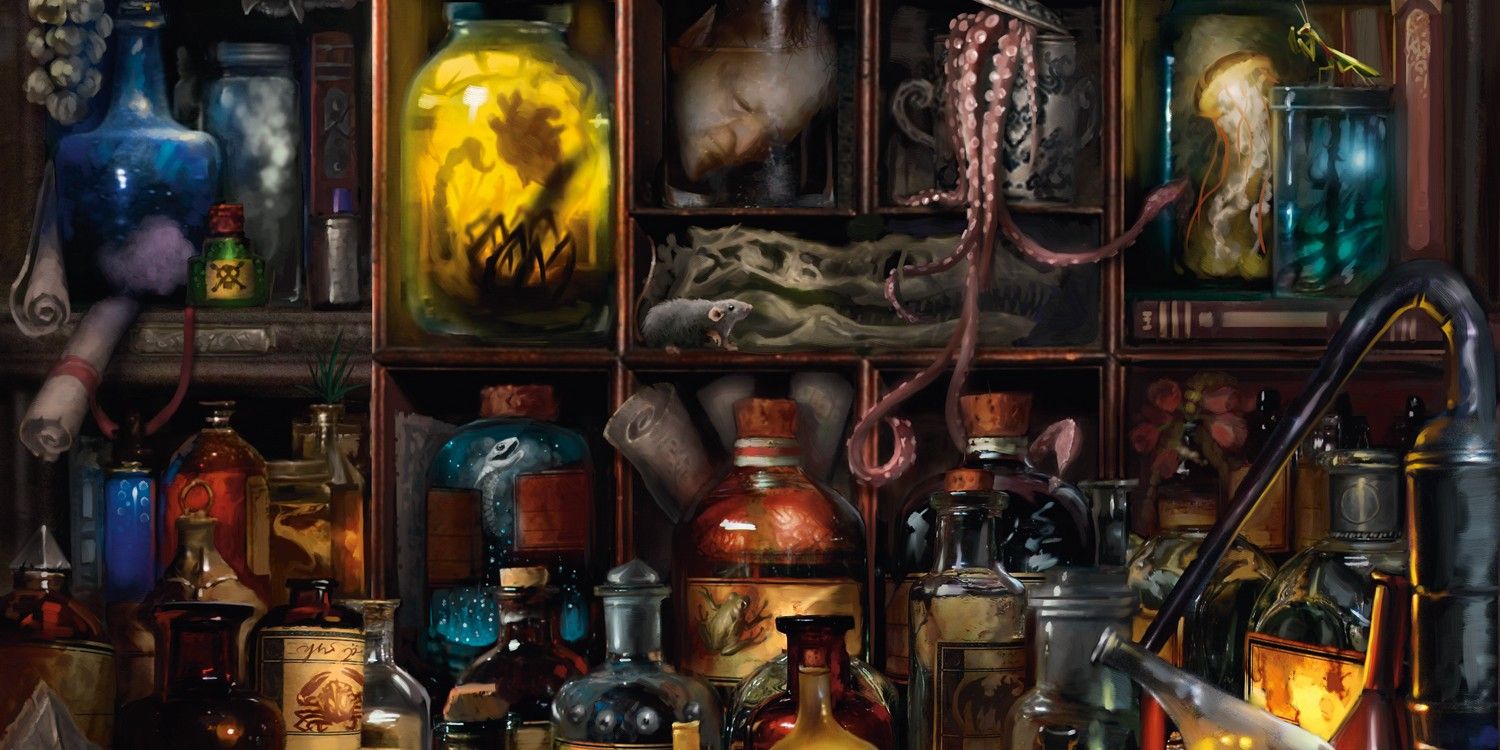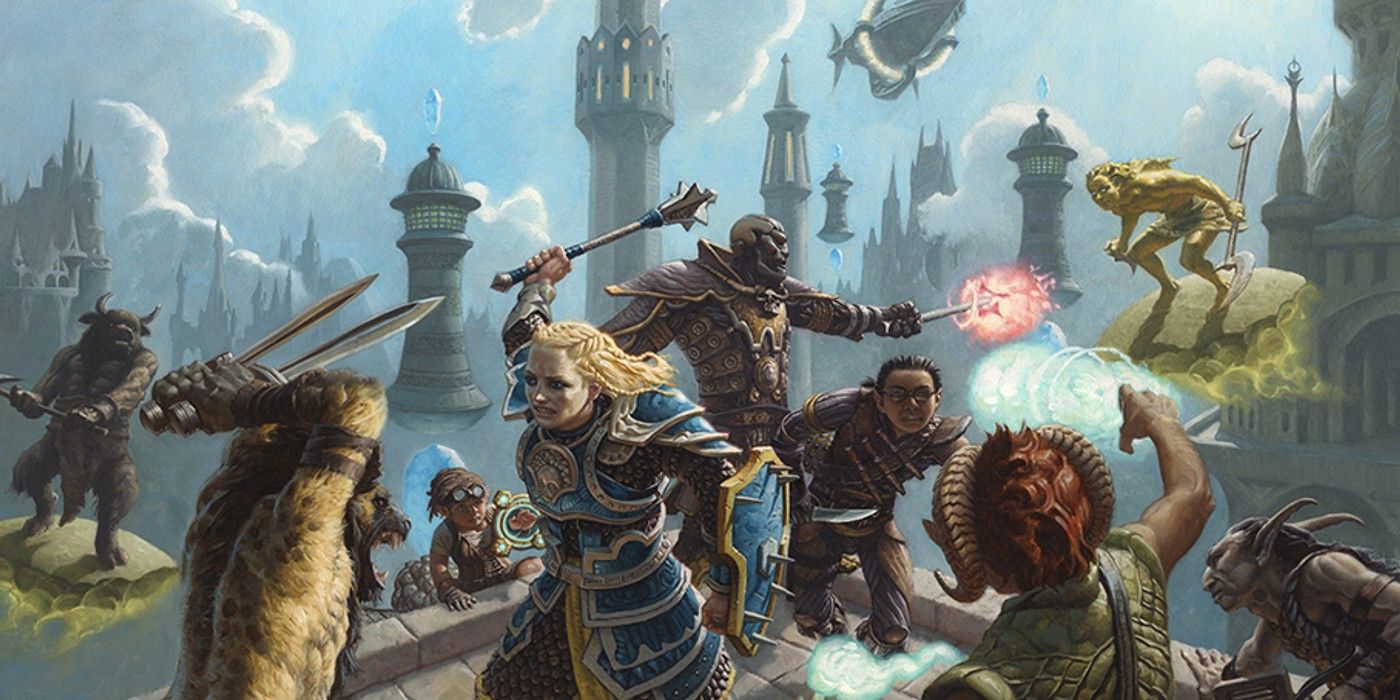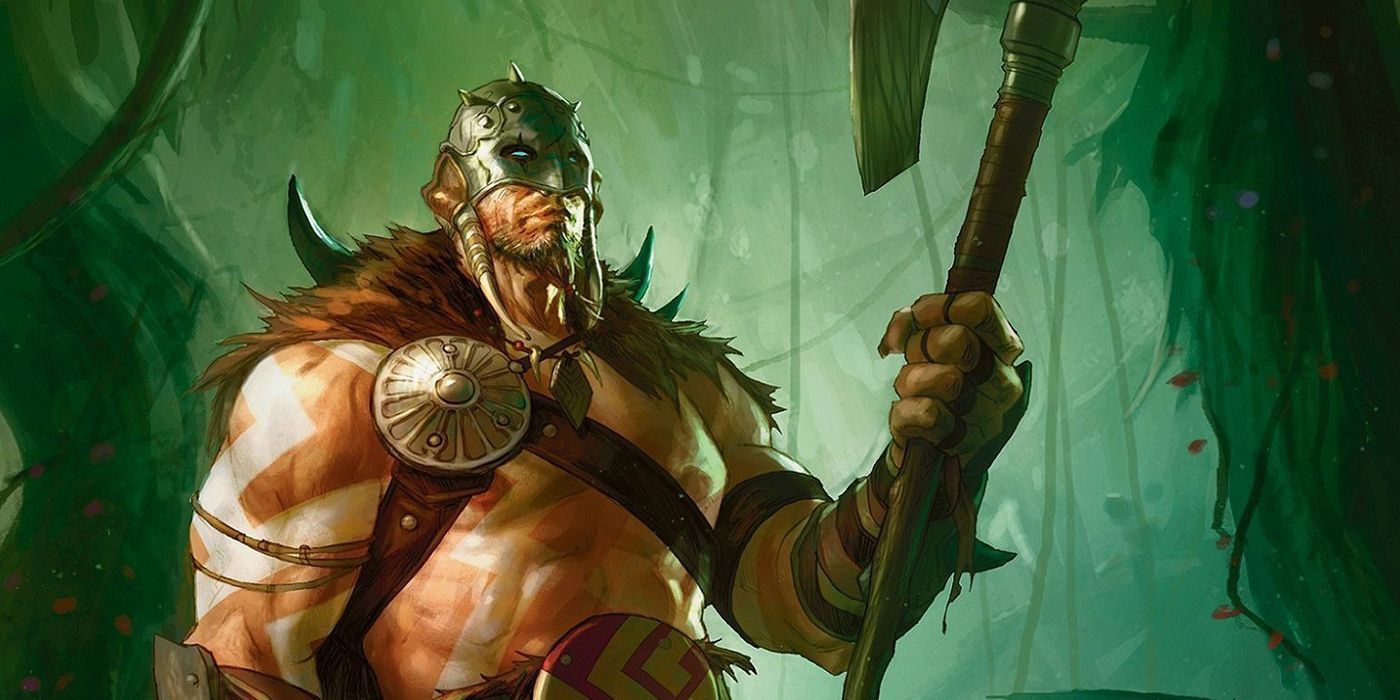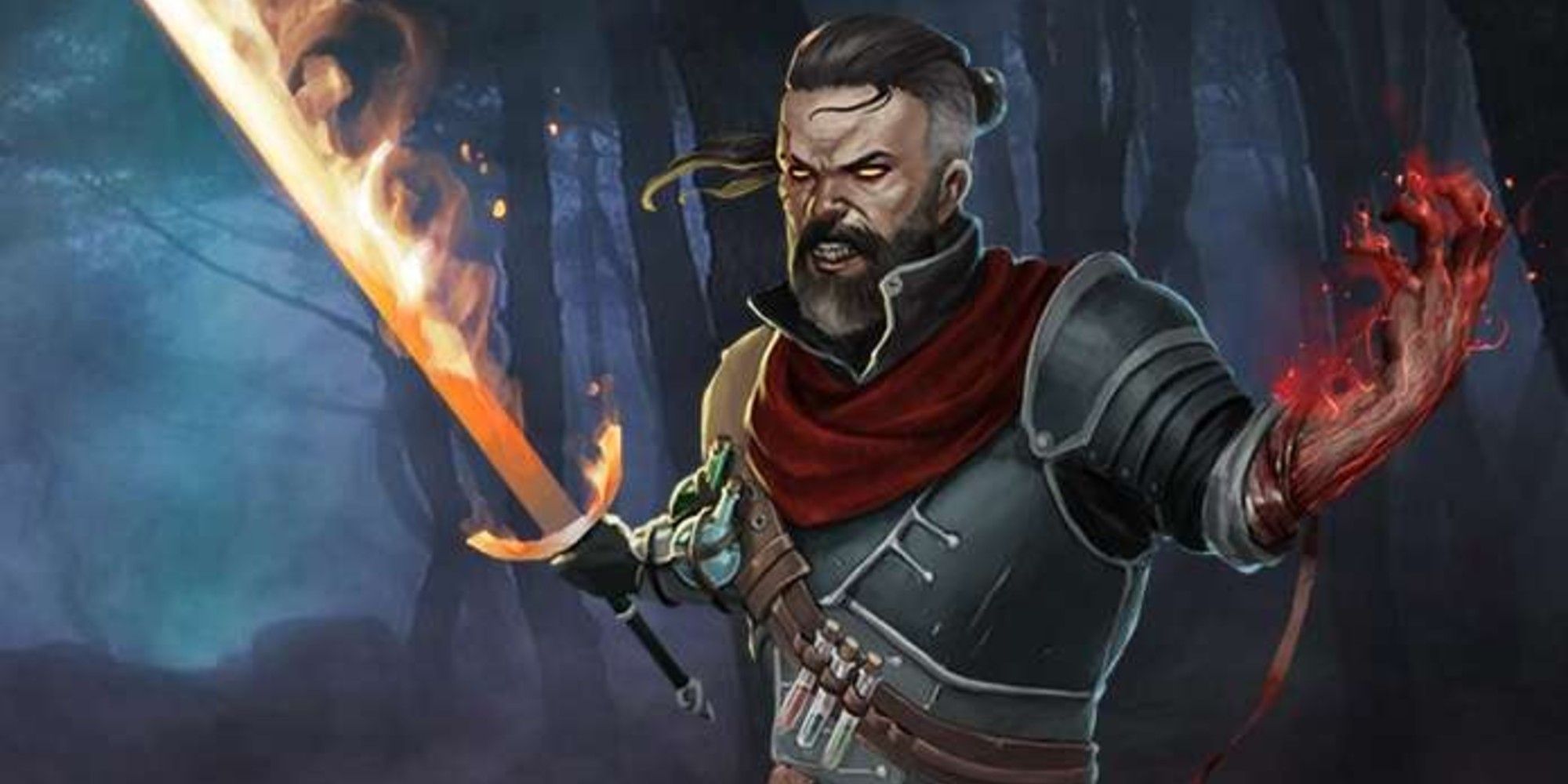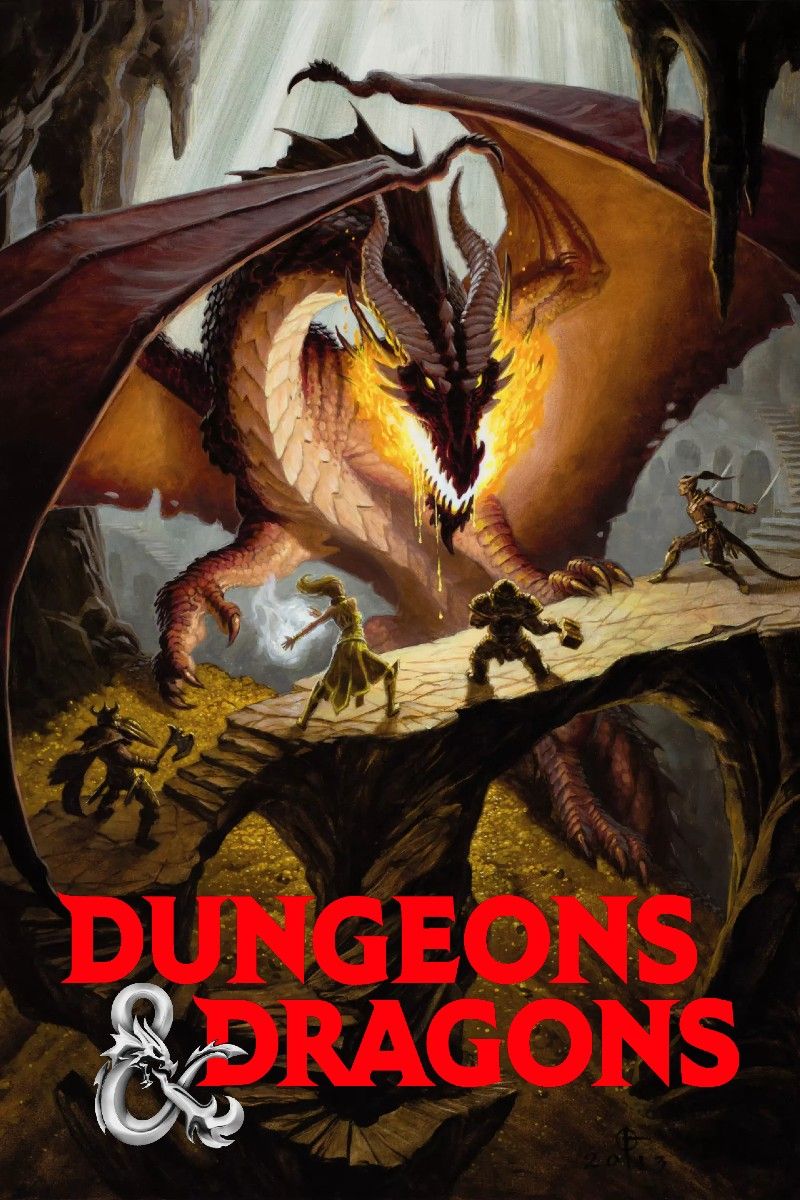Quick Links
While the core rules of Dungeons & Dragons 5e are perhaps the best official iteration of the game to date, the system is far from perfect. Oftentimes that's where homebrew DnD rules come in, allowing players to adjust their play experience to their liking. While homebrew can be used to modify the game to accommodate a particular genre of story or character concept, other homebrew rules are broader, implemented to fix larger issues within the rules of DnD 5e.
While players and DMs can start preparing for DnD 5.5e, the finalized official rules won't be available until 2024, so there's plenty of time to try homebrew rules for the current version. Some homebrew DnDrules have gained significant popularity within the community because they work well with the existing game and remedy some of the more common problems players encounter.
DnD Homebrew Rule To Fix Healing Potions
Potions have long been a mainstay of Dungeons & Dragons, and that's no different in 5e. While not as rare as some of DnD's other magic items, these vials and bottles full of colorful liquids that bestow wondrous effects are a valuable tool for adventurers. Potions can enhance the drinker's strength, turn them invisible, or even heal a mortal injury.
While the variety among types of potions in DnD can be staggering, one type is perhaps the most important. The humble potion of healing is straightforward and effective - drinking one restores a variable number of hit points, patching up scrapes or staving off death. There are multiple variations of healing potions in DnD, including:
|
Potion Of Healing |
Common |
2d4 + 2 HP |
|---|---|---|
|
Potion of Greater Healing |
Uncommon |
4d4 + 4 HP |
|
Potion of Superior Healing |
Rare |
8d4 + 8 HP |
|
Potion of Supreme Healing |
Very Rare |
10d4 + 20 HP |
In combat, it takes an action to drink any potion, so players need to weigh the opportunity costs. Under most circumstances, drinking a potion takes valuable time that could otherwise be spent attacking foes or casting spells; as such, potions that apply buffs to the drinker are best preemptively imbibed before a fight breaks out. However, as healing potions are only useful after an adventurer gets injured, they can't be utilized in the same way.
Without one of DnD's clerics (already receiving One D&D changes) or another spellcaster with access to healing, these potions are the only surefire way to restore hit points mid-combat, so all of this causes significant friction for players. A frequent homebrew rule for DnD 5e is to change the one action use time on healing potions to one bonus action, allowing players to heal and still act on their turn.
DMs concerned this might be too powerful need not worry as there's an important caveat - only healing potions a character drinks themselves are affected. Any other kind of potion, or a potion administered to another character, still takes a full action. Plus, many players agree that healing characters in Dungeons & Dragons 5e isn't particularly powerful, which makes being able to do so as a bonus action one of the best homebrew rules for DnD 5e.
DnD Homebrew Rules To Fix Flanking Bonuses
DnD has an interesting relationship with flanking. While it's technically an optional rule in Dungeons & Dragons, plenty of DMs provide advantage on attack rolls to players who flank their targets. Rewarding DnD players who utilize good tactics is fun, but this rule messes with the game's experience in a strange way. Advantage on an attack is meant to be special - attainable by knocking enemies prone, attacking while unseen, or other somewhat unreliable methods.
The official flanking rule in DnD removes the need for these compelling tactics, instead allowing players to simply walk a few feet further than usual to get behind their target. Suddenly, a barbarian's ability to get on-demand advantage with reckless attacks seems far less impressive.
A common fix to this is to change the flanking bonus from advantage to a flat bonus to the attack roll. This might seem antithetical to DnD 5e's goals as unlike systems like Pathfinder, DnD 5e's gameplay is comparatively designed to reduce complexity by condensing as many bonuses as possible into the advantage system. However, fixed numeric modifiers to rolls do exist in the official DnD rules.
For instance, against ranged attacks, half and three-quarters cover modify a target's armor class by +2 and +5, respectively. Some DMs use these same numbers for flanking bonuses; a +2 bonus to attack rolls for flanking with one ally, and a +5 bonus for flanking with two or more. If these numbers seem too high, DMs can lower the bonuses, but should remember that advantage on a roll is, on average, mathematically comparable to a +5, and that enemies can benefit from flanking tactics just as well as the adventurers can.
Critical Role's Blood Hunter Should Be An Official DnD Class
The renowned DM of Critical Role, Matthew Mercer, has his own homebrew DnD rules, which have been used intermittently on the show. While many said rules have made their way into the larger DnD community, there's likely none as popular as Mercer's homebrew Blood Hunter DnD class. As 5e has only received one new class in the eight years since its release, homebrew classes are a common find online, but these can end up wildly unbalanced or overly-complex. Critical Role's Blood Hunter isn't perfect, but it's about as close to an official DnD class as homebrew gets.
Warriors who specialize in the lifeforce found within blood, Blood Hunters tap into the macabre power of hemocraft to enhance their prowess on the battlefield. The class' four specializations further divide its often taboo practices into distinct Orders. Before his untimely character death, Critical Role fan-favorite character Mollymauk Tealeaf was a Ghostslayer, a Blood Hunter who's training involves seeking out and destroying undeath. Lycans are werewolf-like beings who can take on a hardy bestial form, but must fight to keep control when injured in combat.
Profane souls are a bit like DnD's Warlocks - they make pacts with otherworldly entities for powers even beyond the limits of hemocraft. Lastly, mutants seem to take inspiration from The Witcher, and learn to craft alchemical mutagens that provide powerful boons in exchange for significant drawbacks. Overall, the Blood Hunter class is great for tables who want a bit more variety out of Dungeons & Dragons 5e with a high-quality class on par with the official game's rules. See how to build one yourself in the YouTube video from D&D Beyond below:
It's unclear if versions of these rules, or other rules that account for the same problems, will be present in DnD 5.5e, but players will almost certainly create new homebrew fixes for any perceived problems with new 5.5e rules. Until then, all the above homebrew rules work particularly well with DnD 5e's official rules, and deserve to be added into the actual game.

